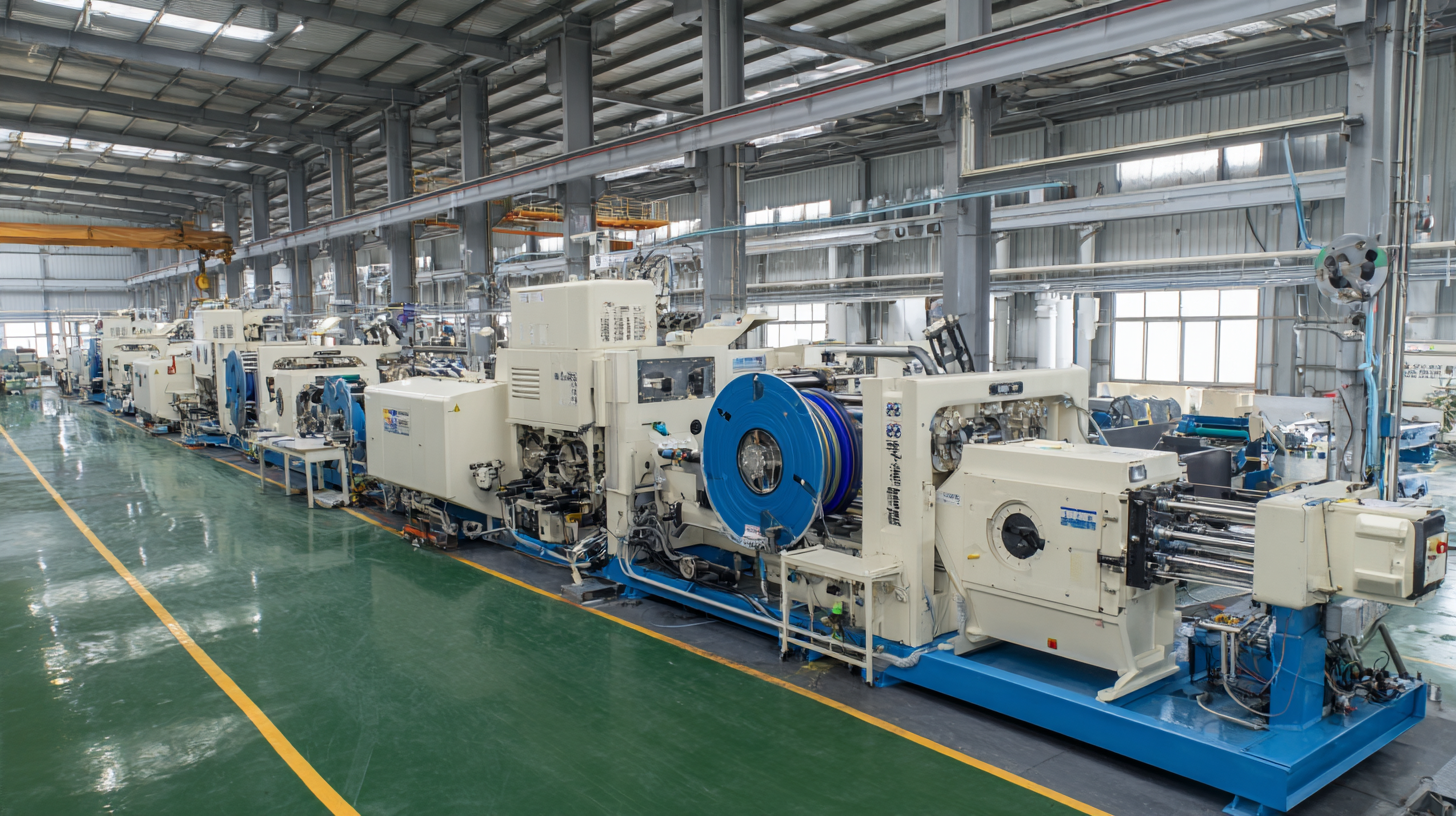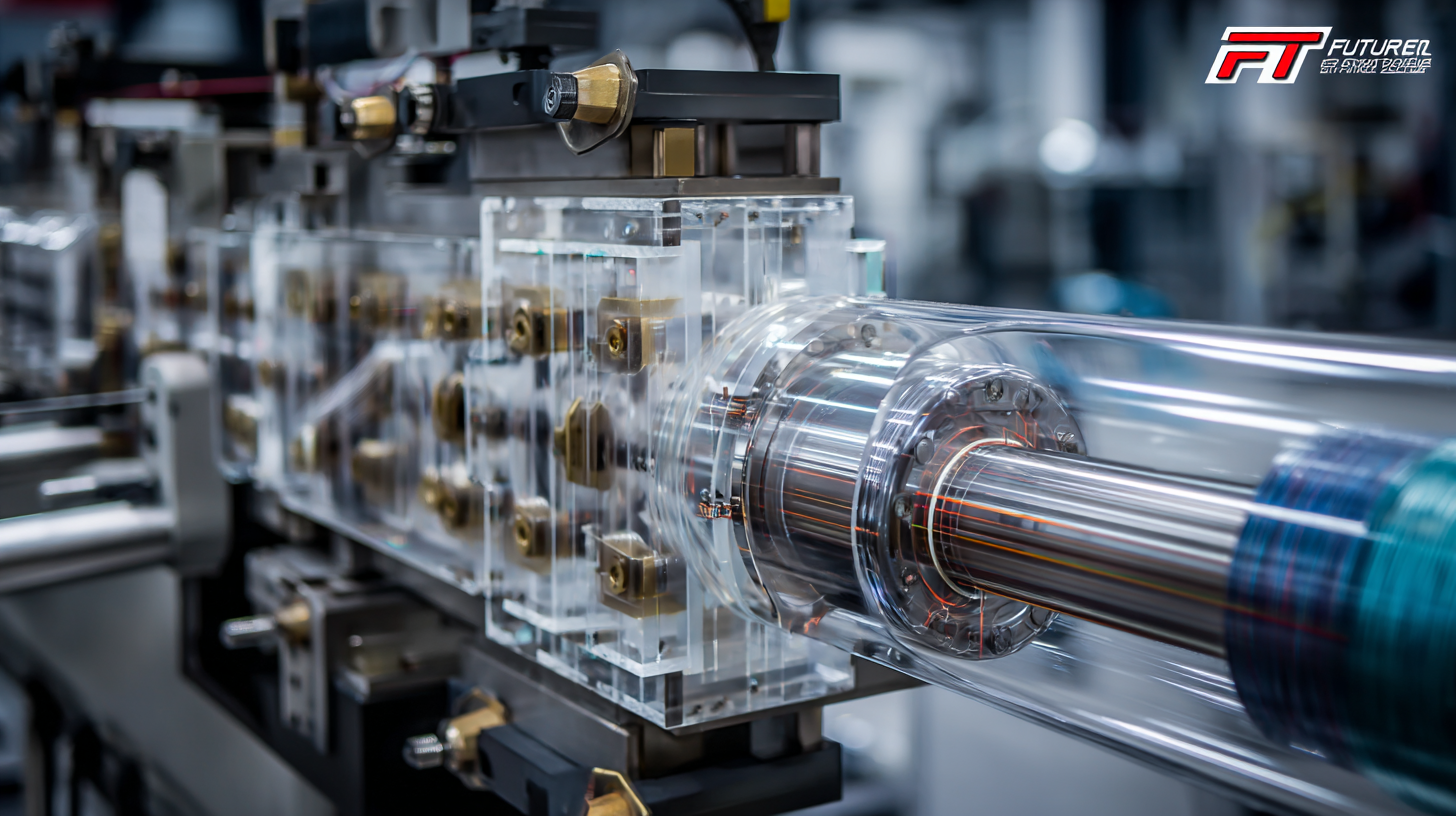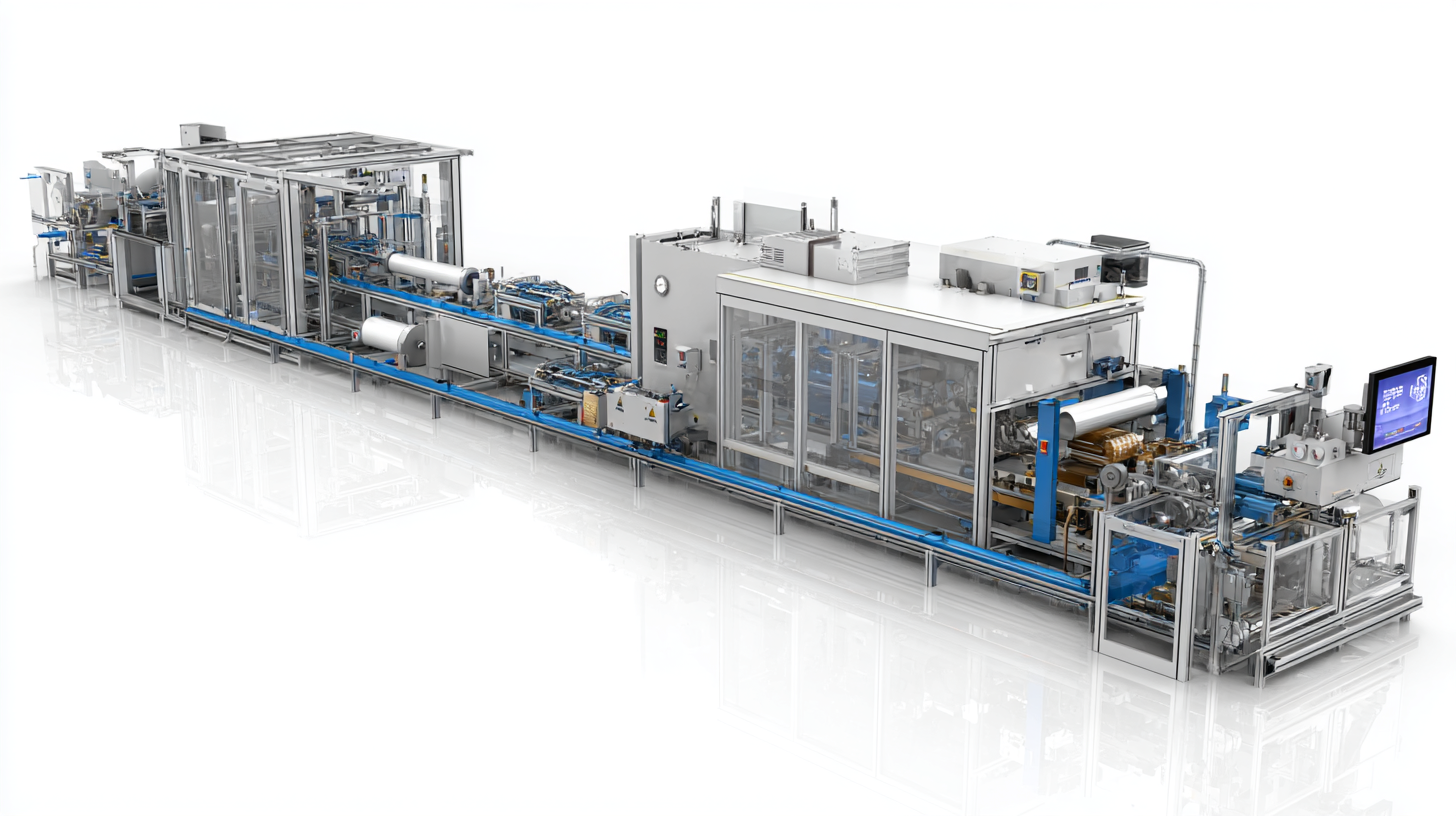
As we approach 2025, the landscape of the plastic manufacturing industry is undergoing significant transformations, with the Plastic Profile Extrusion Machine at the forefront of this evolution. Reports indicate that the global market for plastic extrusion machines is projected to reach USD 8.22 billion by 2025, driven by an increasing demand for custom plastic profiles across various sectors, including construction, automotive, and consumer goods.

However, manufacturers must navigate several challenges, such as rising raw material costs and the need for sustainable practices. Understanding these trends and preparing for potential issues is crucial for global buyers looking to invest in plastic extrusion technology. This blog will explore the future of Plastic Profile Extrusion Machines, highlighting key technological advancements and providing an essential checklist to ensure informed purchasing decisions.
The landscape of plastic profile extrusion machines is set to evolve significantly by 2025, driven by emerging technologies that promise enhanced efficiency and sustainability. One of the key trends is the integration of automation and artificial intelligence. These advancements enable manufacturers to optimize production processes, reduce waste, and improve product quality. Smart extrusion lines equipped with real-time monitoring systems can detect anomalies during production, ensuring consistency and decreasing downtime.
Another emerging technology is the use of advanced materials and additives that facilitate the extrusion of custom profiles. Innovations such as bio-based plastics and high-performance polymers are gaining traction, aligning with global sustainability goals. Furthermore, developments in 3D printing technologies are being explored to complement traditional extrusion processes, allowing for greater customization and faster prototyping. As these technologies continue to develop, they will play a crucial role in shaping the future of the plastic profile extrusion industry, providing global buyers with exciting opportunities for growth and innovation.
The evaluation of modern extrusion equipment, particularly plastic profile extrusion machines, necessitates a keen focus on Key Performance Indicators (KPIs) that reflect both efficiency and innovation. According to a recent market analysis by Grand View Research, the global plastic extrusion market is projected to reach $274.9 billion by 2025, highlighting the increasing demand for high-performance machinery. Buyers must prioritize KPIs such as output rate, energy efficiency, and product quality to stay competitive in this evolving landscape. For instance, a machine with an output rate exceeding 500 kg/h can significantly enhance production capabilities, while energy-efficient models can reduce energy consumption by up to 30%, which is crucial given the rising operational costs.

Another essential KPI is the machine's adaptability to various materials, as reported by Smithers Pira, which emphasizes the need for versatility in an era where recycling and sustainability are of utmost importance. The ability to work with different polymer types and incorporate recycled materials can substantially influence a company's environmental footprint and enhance its marketability. Furthermore, automation features, such as real-time monitoring and predictive maintenance, are becoming standard in new machines, facilitating not only efficiency but also operational agility. These advancements serve as critical benchmarks for buyers in their pursuit of the best plastic profile extrusion machinery that aligns with the technological trends of 2025.
When selecting an extrusion machine, buyers should prioritize several essential features that can enhance productivity and efficiency. According to a recent report by Research and Markets, the global plastic extrusion machinery market is expected to reach $7.7 billion by 2025, driven by advancements in technology and an increasing demand for high-quality extruded products. One critical feature to consider is the machine's energy efficiency. Extruders that incorporate advanced drive technologies can reduce energy consumption by up to 30%, significantly decreasing operational costs.
Additionally, the choice of materials and barrel design is vital for optimal performance. The extrusion system should accommodate a wide range of materials, including various thermoplastics, while ensuring uniform temperature distribution to avoid degradation. A report by MarketsandMarkets also highlighted that machines with modular designs offer greater flexibility and are preferred by buyers seeking to adapt to changing production needs. Incorporating features such as precise temperature control and advanced automation also contributes to higher output quality and consistency, making them indispensable in today's competitive market.
| Feature | Importance | Technology Trends (2025) | Checklist for Buyers |
|---|---|---|---|
| Energy Efficiency | High | Smart Energy Management Systems | Check energy consumption metrics |
| Automation | High | AI-Driven Process Control | Inquire about automation capabilities |
| Material Compatibility | Medium | Versatility in Processing Various Plastics | Verify compatibility with required materials |
| Ease of Maintenance | Medium | Modular Design for Simple Access | Look for maintenance documentation |
| Production Speed | High | Advanced Drive Systems | Ask about output rates |
| Customization Options | Medium | Tailorable Machine Configurations | Discuss customizability with suppliers |
| Quality Control Systems | High | Integrated Quality Monitoring | Review quality control features |
The landscape of plastic profile manufacturing is poised for significant transformation by 2025, driven by various market trends that are reshaping production processes and technologies. One dominant trend is the increasing emphasis on sustainability. As environmental concerns mount, manufacturers are turning toward eco-friendly materials and energy-efficient production methods. This shift not only caters to consumer demand for greener products but also aligns with regulatory pressures encouraging reduced carbon footprints.
Another critical trend is the integration of advanced technologies in plastic extrusion processes. Automation and smart manufacturing solutions, including the Internet of Things (IoT) and artificial intelligence (AI), are becoming essential in optimizing production efficiency and reducing waste. These technologies enable real-time monitoring and predictive maintenance, ensuring that machines operate at peak performance while minimizing downtime. Consequently, global buyers are urged to reevaluate their machinery investments, focusing on equipment that embodies innovation and adaptability to meet these evolving market demands.
This chart illustrates key predicted market trends for the plastic profile extrusion machine sector by 2025, highlighting critical areas such as market growth, technology, sustainability, emerging markets, and consumer demand.
As the global demand for plastic profile extrusion machines continues to grow, ensuring compliance with quality standards is crucial for buyers. In 2025, one of the key trends will be the incorporation of environmental sustainability into production processes. Buyers should familiarize themselves with compliance measures that align with net-zero goals, especially as markets begin to emphasize carbon credits and offsets. This awareness not only supports environmental initiatives but also enhances brand reputation.
When assessing suppliers, it is essential to have a checklist that includes verification of certifications, understanding their supply chain practices, and evaluating their commitment to continuous improvement. For instance, explore whether suppliers are adapting to new regulations or market demands related to sustainability. Moreover, prioritize suppliers that demonstrate a stable track record of audit compliance, as this reflects a strong commitment to quality and reliability.
Finally, engaging with suppliers who adopt recognized environmental standards will not only assist in meeting compliance requirements but will also set a foundation for long-term partnerships. As the market evolves, aligning procurement practices with these standards will become a hallmark of competitive advantage in the industry.

